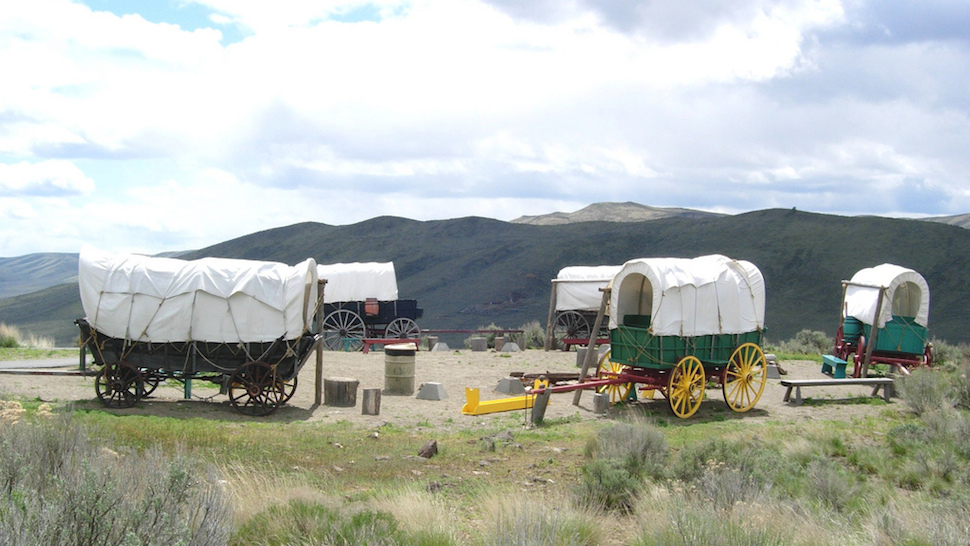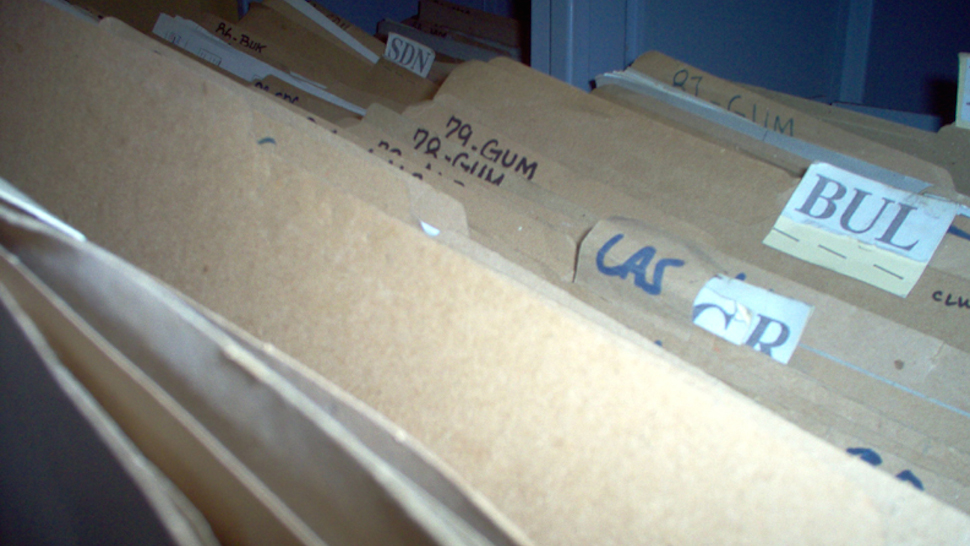It’s one thing to dislike your job, but it’s another to feel physically ill walking in to work. If your job just doesn’t have redeeming qualities, your work environment may be toxic in more ways than one. Here’s how to handle it, especially when quitting is not an option.
Pictures: hxdbzxy (Shutterstock), Ollyy (Shutterstock), R/DV/RS, Hugh Millward, Eric James Sarmiento, Ingrid Taylar, Martin Fisch
In short, a toxic work environment is any job where the work, the atmosphere, the people or any combination of those things make you feel so dismayed it causes serious disruptions in the rest of your life. Make no mistake, every job sucks sometimes, but you know a job is toxic when you can’t find joy in anything there. Some of your coworkers may be great, but others drag you down. The policies are stifling and the managers nitpick and micromanage. The only good thing about your job is the end of the day. If any of those things sound familiar, it’s time to do something. Let’s start with the obvious, and then talk about what else you can do to get a little relief and protect yourself.
Know When To Fold, And Avoid Putting Energy Into The Untenable

Too many people stick it out in toxic environments when they don’t have to. Sometimes, a toxic environment is beyond saving. If your job is causing you serious emotional or physical stress, you should get out as soon as possible. I’ve seen people quit toxic jobs without anything lined up because they simply couldn’t bear the notion of going back another day. If you can, get a new job first or prep your safety net — but do leave.
If you decide to stay, there are some things you can do to protect yourself, but unless the root cause changes, it won’t get much better. If you think the root cause may change soon — like a horrible manager on his or her way out, or the potential for a transfer to a new group — then it makes sense to stick it out. Just make sure you’re not staying in a situation that promises to change but never will. Similarly, don’t let your job’s toxicity drain your willpower so much you’re too wiped to look for something better. Of course, don’t just take anything that comes along as a way out either. Make sure your next move is a step forward, or you may find yourself back in the same pit, just with different walls.
Circle The Wagons And Rally Like-Minded Colleagues

If you’re in no position to quit, or you don’t have the luxury of just walking off a job because it’s making you crazy, there are a few things you can do, at least in the short term. First and foremost, make sure you have coworkers who will watch your back. This can be difficult if your coworkers are guilty of chronic backstabbing, but it’s a good idea if you can rally a few to the cause. When one of you hears something that will impact everyone, like some new policy everyone will be held to before they’re actually told about it, you guys can share that information and protect yourselves.
The idea has its roots in high-school playground logic: you hang out with the people who are most like you and most willing to support you. Toxic work environments are eerily similar to those days, so you have to treat them the same way. The fact that cliques form at all in your office is a sign of a bad work environment. If you have to stay in it, you’re better off finding a group you can ally with than staying on your own. Sometimes, the best thing to do is to make sure you know who your friends are and keep your head down as much as possible.
Document Everything

Even if your job isn’t exactly “toxic”, you should consider documenting everything. Documentation isn’t foolproof protection from overbearing managers or coworkers determined to throw you under the bus for their mistakes, but it can offer some defence. We’ve mentioned that it can be useful to keep a work diary for your own growth, but it can come in handy here too. For those of us in office environments, this means saving and organising every email related to every project you work on, making sure you take notes in meetings and on phone calls, and never trusting someone to recall and agree when you remind them of something they said or did. It’s tiring, but it’s a solid way to make sure your backside is covered.
Good work relationships are built on trust, and if there’s no trust where you work, the only person you can depend on is yourself. Embrace tools like Evernote to keep all of your various documents and projects organised neatly, and treat your inbox like a filing cabinet — there should be folders and labels for everything you work on, or even for every person you interact with. That way, any time someone tries to go back on their word, you can drag out an email or document where they said otherwise. If a manager tries to pretend their policy says one thing when it really doesn’t, you can pull out the policy document.
It’s not foolproof — some managers will take that level of documentation as a threat, while others will back down and leave you alone. However, this technique is especially useful if your HR department is the root of the problem, or the tension at work is because of poor relationships between groups, as opposed to within your own team. Tread carefully, but it’s better to have the documentation and then pick your battles than not have it at all.
It May Be Personal, But It’s Not You

As much as we’d like to say “toxic work environments aren’t personal”, in many cases they really are. Sometimes, a manager may have it out for you, or just want to make you a convenient scapegoat for their own incompetence. Maybe it’s another colleague who wants to boost their career by currying favour with managers, and you’re today’s target. Whatever it is, it can be very personal — maybe you’re new to the company, or that person has it out for you because of the way you look, dress or the career threat you potentially pose to them. Whatever it is, remember that it may be personal, but it’s not your fault. Don’t let yourself get caught up in the swirl of negativity that likely surrounds the whole affair.
Steer clear of office gossip as much as possible (aside from the fair warnings of the people you know have your interests at heart) and keep your head down. Remember, the goal is to get your work done so you can leave at the end of the day, so you don’t want to go looking for confrontation. However, if it finds you, don’t back down or roll over. You don’t want others to get the message that they can regularly pick on you, make you a scapegoat and blame their mistakes on you. Pick your battles wisely, but don’t let personal slights and workplace bullying go unchallenged. Be assertive, and put a stop to their behaviour early on.
I’ve seen many people stick it out in bad environments because early on in their jobs they were too frightened to stand up for themselves. They assumed they were lucky to have the job, and were intimidated by their manager’s or colleagues seniority, so they didn’t stand up for themselves. Remember, every job is a two-way street: The team should need you as much as you need them, and if you get the feeling you need them more than they need you, it’s time to move on. There’s no reason to keep going to work every day to an office or group of people who don’t respect or appreciate you, or worse, behave like they don’t.
Stick To Your Guns And Keep Your Options Open

Whatever you choose to do, make sure to keep your options open. Sometimes toxic work environments only seem that way because we’re sensitive to a specific trigger. There are ways to shore up your defences if you think that might be the case. However, if the environment is truly toxic — and mind you, sometimes all it takes is a spectacularly bad boss — and there’s no way you can save it yourself, it may be time to look for something new.
Even if you can’t turn the situation around, try to make it as much of a learning experience as possible — without taking responsibility for it, of course. Author and entrepreneur Amy Rees Anderson, writing for Forbes, explains:
Another important coping step is to realise that you cannot control what other people say and do, you can only control your own actions and reactions. The sooner you accept that the better for your own mental well-being. This realisation allows you to let go of owning other people’s negative behaviour and it empowers you to focus on improving yourself. The more you can focus on improving yourself in a negative environment the better, because when you finally get the opportunity to escape the situation you are in, you will get to take all the personal growth you have made along with you. No doubt that growth will help you to be even more successful as you move forward.
Finally, try to focus on turning your bad situation into a good learning experience. Most often our strongest personal growth comes from living through our most difficult situations. When you are working in a toxic environment, try to pay close attention to the lessons you can take away from the experience. Perhaps you can learn the qualities in a leader that you never want to emulate. Perhaps you can learn the management mistakes that you would not want to repeat if the opportunity for management ever comes your way. In every bad situation there is something you can learn that will help you become a better person, so focus on each lesson you are learning.
She also advocates that you take the high road and never sacrifice your personal integrity in an attempt to get revenge or “fight fire with fire”, which we wholeheartedly agree with. She suggests you stay engaged at work too — noting that as long as you draw a paycheck you have an obligation to bring your best to your job every day. We’d temper that point a bit — if your work environment is toxic to the point where you feel awful every day, you’re already not bringing your A-game. Do what’s required, but don’t dump energy into a job that doesn’t appreciate your effort. Disengage a bit and spend that extra time and energy looking for something better, whether it’s a transfer to a new department or a new job entirely.
In any case, remember, it’s just a job, and you’re working to live, not living to work. You’re not shackled to your desk, even if you need the money. Don’t sacrifice your personal integrity in anger, but don’t let others walk on you. Toxic work environments come and go, and if you can learn something from it, great — but, as long as you’re in it, watch your back and keep your head down until the smoke clears or you can get out.

Comments